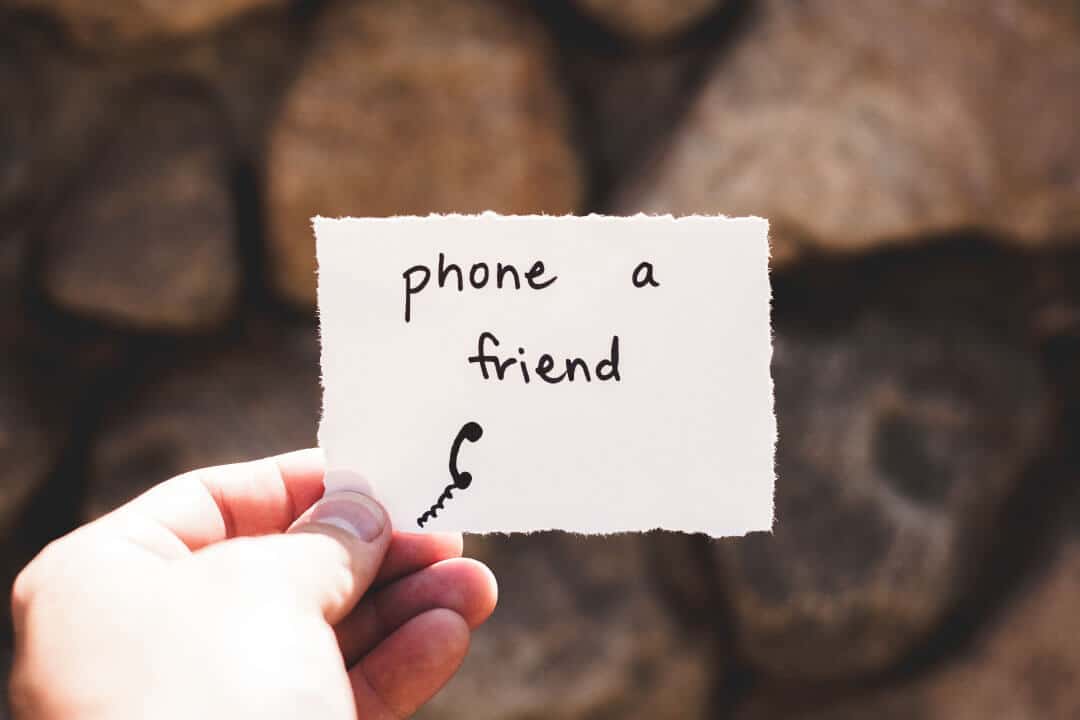Let’s Talk Mental Health
Let’s Talk Mental Health
Updated September 2020: Mental Health Week - let's talk about mental illness
There’s no doubt about, this year has been tough. Firstly the bushfires, then COVID-19 – both have taken a toll on the mental health of many – whether it be through the the experience of living through a bushfire, the uncertainty of the virus, job losses, or being unable to see friends and family.
Even without factoring in the long-term effects of the events of 2020, it is estimated that almost half of all Australians aged 16-85 will experience a mental disorder at some time in their life. With mental health being so prevalent, it makes sense that we take a look at these issues, some of the ways to improve your mental health, and how you can support your loved ones who may be struggling with mental health issues.
What are the stats around mental health?

Almost half of all Australians will experience mental illness in their lifetime
As we mentioned, almost half of all Australian adults will experience a mental disorder in their lifetime. What form this takes varies, from the more prevalent anxiety disorders, such as phobias, through to the affective disorders, such as depression, and on to substance use disorders such as alcohol dependence.
Sadly, the prevalence of mental health issues is on the rise with children, with around 1 in 7 being diagnosed with a mental health disorder. That includes things such as ADHD, anxiety and depression.
Mental health cost us a whopping $9.9 billion in 2017-18. That’s $388 per person!
(It was $9.1 billion, or $375 per person in 2016-17).
(Source: Australian Institute of Health and Welfare)
It’s OK to ask for help

It's OK to ask for help
Despite the rise in prevalence, some still feel there is a stigma around mental health issues. Some see it as a failing, or that they can’t cope if they are struggling with issues such as anxiety, fears, phobias and depression.
We’re keen to tell you that it is OK to ask for help. Our SwiftDoc GPs are here to provide qualified medical advice to assist you in dealing with your mental health issues. And it is all done by video consult too, which we find makes some people feel more relaxed and comfortable when talking about their mental health issues.
We also have a mental health clinician on hand to offer counselling and coaching advice, again, all done via video link, so you can call us from the comfort of your own home. It is so important to reach out – to your loved ones, and to health professionals such as ourselves.
Signs of mental illness

Look out for the things that are "not quite right"
We all get stressed from time to time, but there are some signs to look out for which indicate that things might be a little more serious than your average level of stress and worry.
Remember, everyone is different, so be sure to seek individual advice from a medical professional. Some find that they may suffer from heart palpitations, or shortness of breath. Or they may have regular headaches, or are not sleeping well. It could be that you may have emotional outbursts or are feeling withdrawn, lacking motivation and energy. Maybe you are turning to substances such as alcohol more often than you used to.
If things just seem like they are “not quite right”, talk to a friend or family member, and make an appointment with one of our GPs. Often sharing the problem can help you gain clarity around it, or if not, then it is a good first step to get the help you need to get back on track.
This year, with everything that has been happening in the world, there are now a lot of people experiencing some of these symptoms for the first time. If you notice that a loved one is not behaving as they normally would, or you feel it in yourself, we urge you to seek help.
Favourite mental health activities

Make a list of your favourite mood-lifting activities
We should stress that there’s no substitute for professional support when you are dealing with serious mental health issues. But there are little things you can do in your day if you find that you are feeling a bit down, or are struggling with your mood. Exercise is great to get the endorphins going, and playing sport is fantastic for scratching that competitive itch. Other ways to improve your mood could be by listening to some uplifting music, and dancing around the house, or arranging a catch-up with family or friends. Or it could be as simple as sitting down with a good book and a cup of tea.
Why not make a list of things you really enjoy doing, and pick one to do today? Let us know in the comments what your favourite self-care or mood-busting activities are. And take that first step by booking an appointment to chat to a SwiftDoc GP.
This website does not provide medical advice. It is intended for informational purposes only. It is not a substitute for professional medical advice, diagnosis or treatment. Never ignore professional medical advice in seeking treatment. If you think you may have a medical emergency, immediately dial Triple 0 (000).

Take that first step and book an appointment